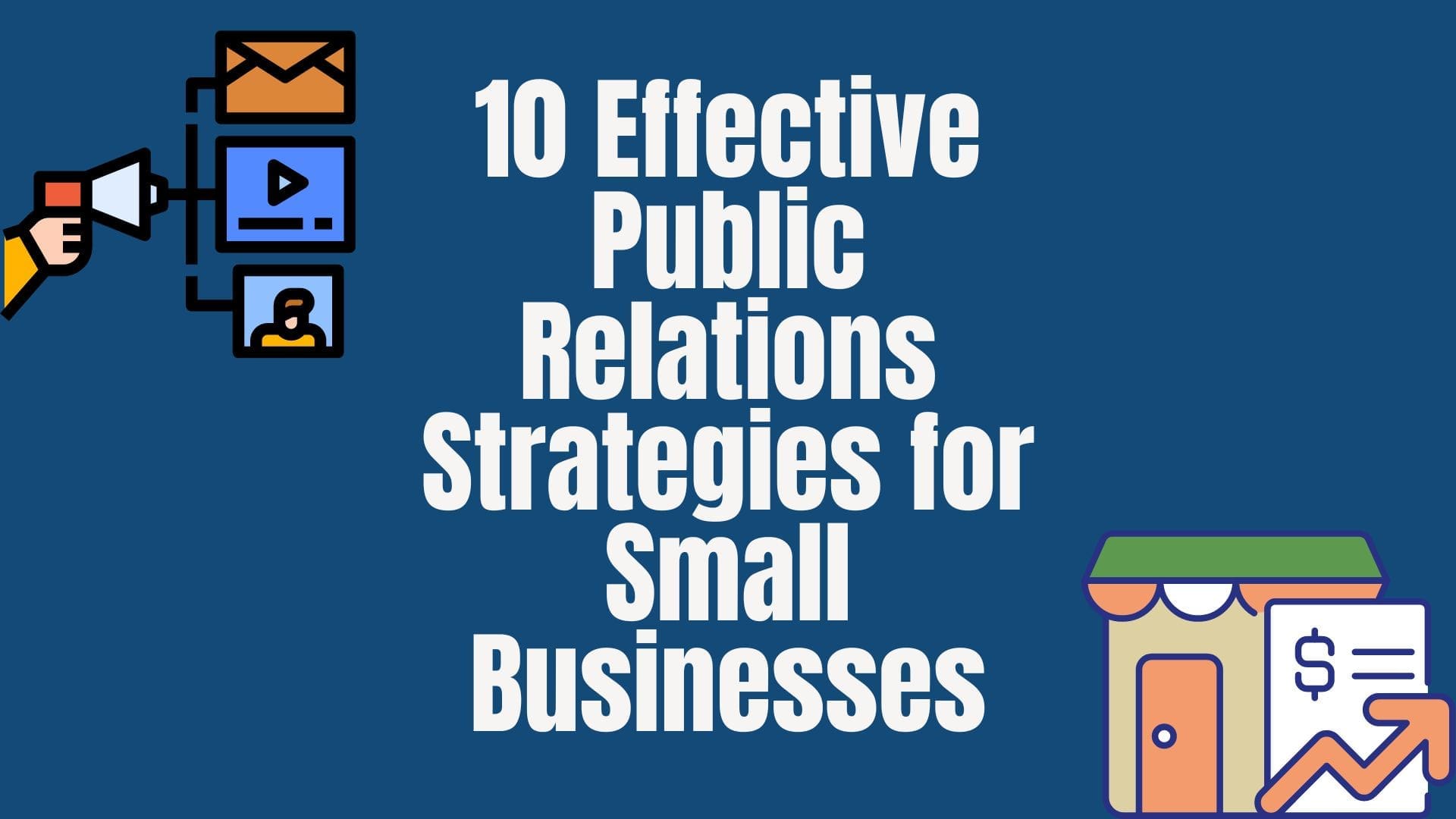
Public relations (PR) is a vital aspect of running a successful business. It involves fostering and maintaining a positive image for your brand, building relationships with key stakeholders, and promoting your business through various channels. For small businesses, implementing effective PR strategies can help increase brand awareness, build credibility, and ultimately drive growth. In this article, we’ll explore 10 public relations strategies that can help your small business thrive.
Developing strong relationships with local media outlets is a crucial part of any effective PR strategy. Reach out to local newspapers, radio stations, and television networks to introduce your business and share news-worthy updates. Offer yourself or an expert from your company as a source for interviews or expert commentary on industry topics. By establishing a rapport with local media, you’ll be more likely to gain coverage when you have news to share.
Find and connect with influential figures within your industry, including bloggers, social media personalities, and other thought leaders. Networking with industry influencers can help boost your brand’s credibility and expand your reach to new audiences. You can connect with influencers by attending industry events, joining online forums, or engaging with them on social media.
Get involved in local events, such as trade shows, conferences, and community gatherings. These opportunities allow you to showcase your business, build relationships with potential customers, and demonstrate your commitment to the community. You can also consider hosting your own events, such as workshops or product demonstrations, to further engage with your target audience and promote your brand.
Press releases are a traditional PR tool used to announce company news, product launches, or events. Publishing press releases on your website and distributing them to relevant media outlets can help you gain exposure and attract attention to your business. Keep your press releases informative, concise, and engaging to increase the likelihood of gaining media coverage.
Guest posting involves creating content for other websites or publications within your industry. This can help you establish yourself as an industry expert, gain backlinks to your website, and reach new audiences. When approaching websites or publications for guest posting opportunities, focus on providing high-quality, relevant, and value-driven content that will resonate with their audience.
Sharing success stories from your business, such as case studies or testimonials, can help demonstrate the value of your products or services to potential customers. Create content that showcases these success stories, and distribute it through your content marketing channels, such as your blog, social media, or email newsletter.
Online reviews play a significant role in shaping your business’s reputation. Regularly monitor review sites, such as Google My Business, Yelp, and industry-specific platforms, to stay informed about what your customers are saying about your business. Reputation management tools can also help you track and manage your online reviews more efficiently.
While it’s not possible to please every customer, it’s essential to address negative reviews in a timely and professional manner. Responding to negative reviews demonstrates that you care about your customers’ experiences and are willing to make improvements based on their feedback. Be sure to thank the reviewer for their feedback, address their concerns, and offer a solution or resolution when appropriate.
In addition to addressing negative reviews, be sure to highlight and celebrate positive feedback from your customers. Share glowing reviews on your website, social media platforms, and marketing materials to showcase your business’s strengths and promote a positive image.
Social media is an essential PR tool for small businesses, allowing you to connect with your target audience, share updates, and engage in conversations about your brand. Maintain an active and consistent presence on relevant social media platforms to build relationships with your audience, showcase your brand’s personality, and create a sense of community.
Social media can also serve as an effective customer service channel, allowing you to address inquiries, concerns, and feedback in real-time. Be responsive and helpful when interacting with your customers on social media, and use these interactions as opportunities to showcase your commitment to customer satisfaction.
Public relations is a powerful tool for small businesses, helping to build a positive brand image, foster relationships, and increase visibility. By implementing these 10 effective public relations strategies, you can strengthen your brand’s reputation, reach new audiences, and ultimately drive growth for your business.
What is the difference between PR and advertising?
PR focuses on building and maintaining a positive reputation and fostering relationships with key stakeholders, while advertising involves paid promotions to reach target audiences. PR typically involves earned media coverage, while advertising is paid media placement.
How often should small businesses publish press releases?
There’s no one-size-fits-all answer, as the frequency depends on the nature of your business and the news you have to share. However, it’s important to only publish press releases when you have genuinely newsworthy information to avoid overwhelming or irritating the media.
What should small businesses do if they receive a negative review?
Small businesses should respond to negative reviews professionally and promptly, thanking the reviewer for their feedback, addressing their concerns, and offering a solution or resolution when appropriate. It’s essential to demonstrate that you care about your customers’ experiences and are committed to making improvements.
What are the best social media platforms for small businesses to use for PR?
The ideal platforms will depend on your target audience and the nature of your business. However, popular platforms like Facebook, Twitter, Instagram, and LinkedIn are often effective for reaching a wide range of audiences and promoting various types of content. Experiment with different platforms to determine which ones yield the best results for your business.
You must be logged in to post a comment.
